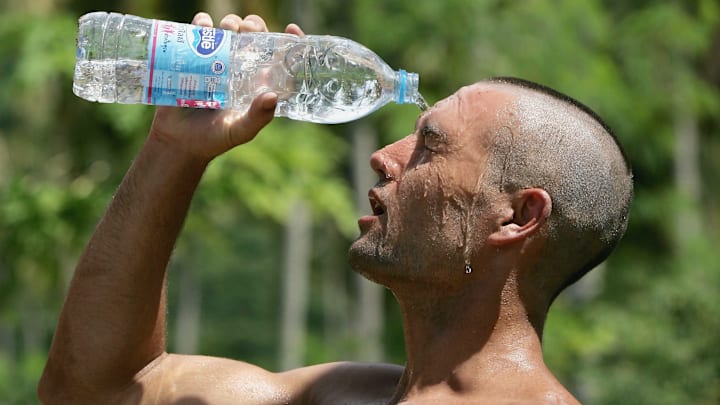The Power of Hydration in Skincare

Our skin is composed of several layers, with the outermost layer, the stratum corneum, acting as a barrier to protect against environmental damage and water loss. When the skin is well-hydrated, this barrier functions optimally, retaining moisture and preventing dehydration. However, when the skin becomes dehydrated, it can lead to a compromised barrier, making the skin more susceptible to dryness, irritation, and other issues.
One of the primary benefits of proper hydration is the prevention of dryness and flakiness. Dry skin can appear rough, dull, and lackluster, and it is more prone to developing fine lines and wrinkles. Hydrating the skin helps to plump it up, smoothing out fine lines and giving it a more youthful and radiant appearance. Well-hydrated skin also has better elasticity, making it more resilient to environmental stressors.
Hydration is essential for maintaining the skin's natural balance. Our skin produces natural oils, known as sebum, which help to lock in moisture and protect the skin. When the skin is dehydrated, it can overcompensate by producing excess oil, leading to an oily complexion and clogged pores. On the other hand, when the skin is properly hydrated, it can regulate oil production more effectively, reducing the likelihood of breakouts and keeping the skin balanced.
The key to effective hydration is using the right products and techniques. Moisturizers are essential for maintaining hydration levels and should be chosen based on your skin type. For oily or acne-prone skin, lightweight, non-comedogenic moisturizers are ideal, as they provide hydration without clogging pores. For dry or mature skin, richer, more emollient moisturizers are recommended to provide deep hydration and nourishment.
In addition to moisturizers, incorporating hydrating serums and essences into your skincare routine can enhance hydration levels. These products often contain humectants such as hyaluronic acid and glycerin, which attract and retain moisture in the skin. Applying these products before your moisturizer can help to lock in hydration and provide an extra boost of moisture.
Another effective technique for maintaining hydration is to use a humidifier, especially in dry or cold climates. Humidifiers add moisture to the air, preventing the skin from becoming dry and dehydrated. This is particularly beneficial during the winter months when indoor heating can strip the skin of its natural moisture.
Hydration is not only about external skincare products but also about internal factors. Drinking plenty of water throughout the day is essential for keeping the skin hydrated from within. Water helps to flush out toxins, maintain skin elasticity, and promote a healthy complexion. Incorporating a diet rich in fruits and vegetables, which are high in water content, can also contribute to overall hydration and skin health.
It's important to note that over-cleansing and using harsh skincare products can strip the skin of its natural oils, leading to dehydration. Opting for gentle cleansers and avoiding products with high alcohol content can help maintain the skin's natural moisture balance. Additionally, avoiding long, hot showers and using lukewarm water can prevent the skin from becoming dry and irritated.
In conclusion, hydration is a crucial component of skincare that significantly impacts the health and appearance of our skin. Proper hydration helps to maintain a strong skin barrier, prevent dryness and irritation, and promote a balanced complexion. By using the right products, techniques, and maintaining a healthy lifestyle, you can achieve and maintain well-hydrated, radiant skin. Emphasizing the importance of hydration in your skincare routine will lead to long-lasting benefits and a more youthful, glowing complexion.